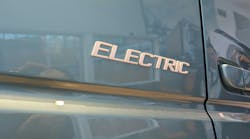A federal judge temporarily halted California's ability to enforce a first-in-the-nation mandate for cleaner, low-carbon fuels, finding that the state Air Resources Board’s regulations discriminate against crude oil and bio-fuel manufacturers outside the state.
A lawsuit challenging the state regulations was filed in federal court last year by a coalition that includes the National Petrochemical & Refiners Assn. and the Consumer Energy Alliance.
U.S. District Court Judge Lawrence O’Neill’s ruling Thursday said the low-carbon fuel rules violated the U.S. Constitution’s commerce clause by discriminating against crude oil and bio-fuels producers located outside California.
“Today’s decision ... struck down a misguided policy that would have resulted in even higher fuel costs for California consumers while increasing the cost of business throughout the state,” Michael Whatley, Consumer Energy Alliance executive vice president, said in a Sacramento Bee report .
The regulations require gasoline and diesel fuel producers, refiners and importers to reduce the carbon footprint of their fuel by 10% over the next decade, as part of California’s landmark global-warming law aimed at reducing greenhouse gas emissions to 1990 levels by 2020.
In a joint statement, Bob Dineen, president of the Renewable Fuels Assn., and Tom Buis, chief executive of Growth Energy, which were plaintiffs in the case, said, “With this ruling, it is our hope that the California regulators will come back to the table to work on a thoughtful, fair, and ultimately achievable strategy for improving our environment by incentivizing the growth and evolution of American renewable fuels.”
The judge’s ruling did not invalidate the low-carbon fuel program or its reporting requirements, according to the Los Angeles Times. But the injunction does remove the state’s ability to punish fuel wholesalers and refineries that sell gasoline or bio-fuels whose carbon footprint exceeds state guidelines, effectively taking the teeth out of the regulations.
The low-carbon fuel program was defended by Air Resources Board spokesman Stanley Young who said it was “an evenhanded standard that encourages the use of cleaner low carbon fuels,” in the Times report. “It does not discriminate against any fuels on the basis of geography.”
Young said the agency will seek clarification of the ruling and plans to appeal the decision to the U.S. 9th Circuit Court of Appeals.


